A water leak in your house almost always spells trouble. If it’s appeared suddenly, you might need to turn your water supply off and move your furniture. Then again, if it’s a slight leak that’s been a problem for a while, it might lead to structural issues.
The thing is, water leaks can also cause health problems – but because water leaks and damp can often be hard to detect, it’s not always immediately apparent that they’re the cause.
We’ll explore some of the health issues that can appear if you’re living in a property that’s suffering from a hidden water leak – and give you a few tips on how to put things right.
Contents
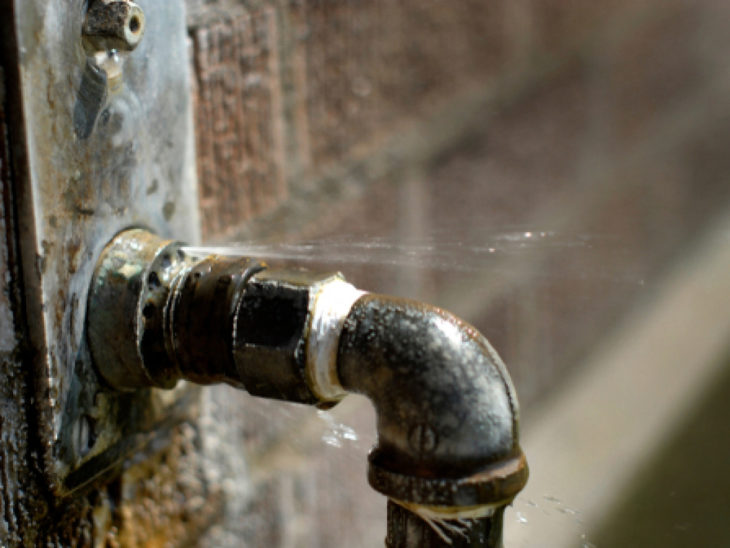
Source: prostarplumbingca
When we think of water leaks, it tends to be an image of an overflowing bath or broken washing machine that springs to mind.
The most damaging water leaks are those that don’t have any immediate symptoms. A slight split in a pipe or a corroded central heating system can be slowing, letting water seep into your home – and because there are no apparent signs, moisture can be spreading for a long time.
Unfortunately, most building materials aren’t waterproof. Although masonry and bricks do an excellent job of keeping the weather out, even homes that are built with cavity walls can be affected by penetrating damp – and when the moisture builds up, it can quickly lead to mold growing around your house.
Why is mold a problem?
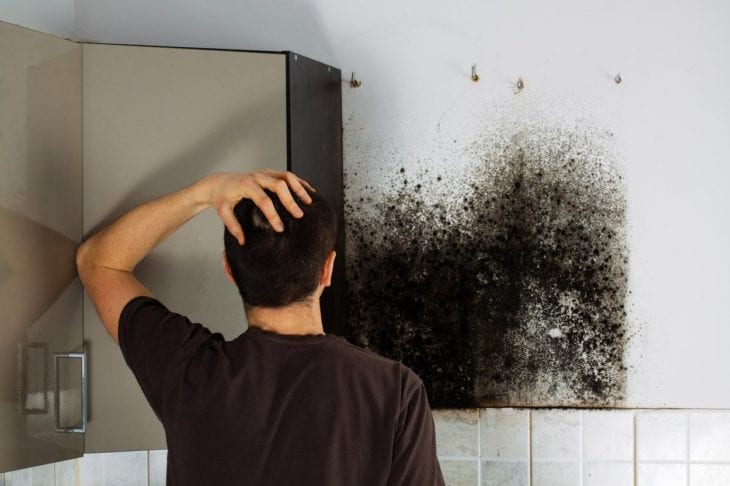
Source: greenlifestylemarket
As well as being unsightly if it’s growing somewhere visible, mold is responsible for a wide range of health problems.
The problem is all down to how mold grows.
Instead of spreading like a plant or moss, mold releases microscopic ‘spores’ into the air. Because they’re so tiny, these spores float in the air and are carried on natural currents, making it virtually impossible to avoid breathing them in.
Breathing a small number is unlikely to cause a problem – but in damp properties where there are more of these invisible particles in the air, they can build up in your body and create several serious problems.
Who’s likely to be affected by a damp house?
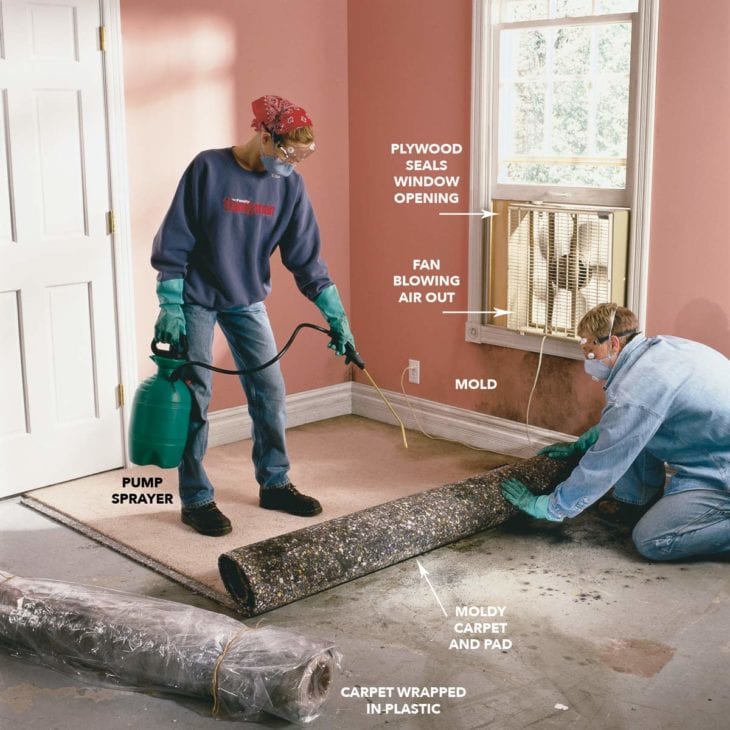
Source: familyhandyman
Although mold has the potential to cause health problems for anyone, there are certain groups of people who should do everything possible to stay away from damp and mold – including:
- Newborns, babies, and children
- Elderly people
- People with breathing/respiratory problems – such as allergies, asthma, and sleep apnoea
- People with skin problems – such as eczema/dermatitis
- Those with a weakened immune system – such as people receiving radiotherapy or with underlying chronic health issues
What kind of health problems can mold cause?

Source: medicalnewstoday
Mold spores are an allergen, and as such, they cause many people to have an allergic reaction if we come into contact with them.
Since mold spores tend to hang in the air, most people’s reactions come when they breathe these spores in. Typically, mold spores will cause sneezing, a runny nose, red eyes, headaches, and breathing difficulties.
These reactions are our bodies trying to get rid of the mold spores. Excess mucus is often a defense mechanism – a thick, sticky barrier that stops more mold getting into our bodies. If you’ve got a cold that feels like it never goes away, it could be your body dealing with allergic reactions created by damp.
For people who have asthma, further breathing difficulties like these can lead to potentially dangerous asthma attacks.
Skin conditions caused by mold

Source: moldremediationus
Of course, it’s not just breathing issues that damp can cause. If your skin comes into direct contact with mold spores, it’s not uncommon to get a rash or flare-ups of existing skin conditions like eczema.
In some cases, mold spores have been shown to irritate other fungal conditions, like athlete’s foot and nail infections.
Dealing with mold in your home
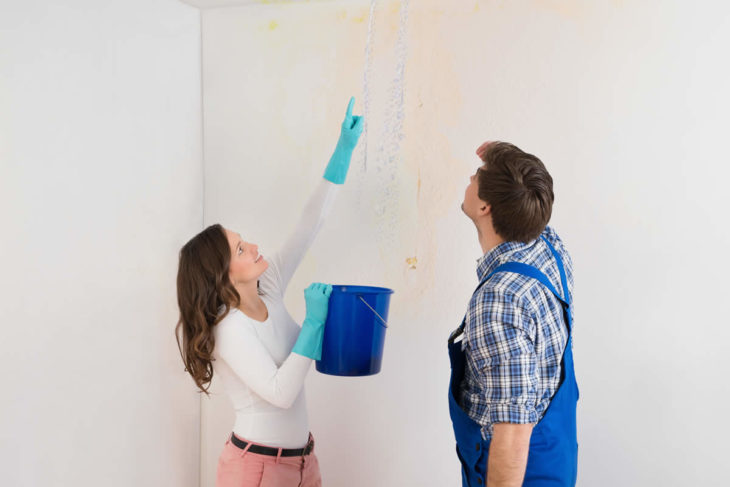
Source: royaloakremodelingcontractor
Since damp and mold can be responsible for so many health issues, it’s understandable that you’d want to get rid of it as quickly as possible – but you need to be careful if you’re planning to take matters into your own hands.
You should only attempt to remove mold yourself if it’s covering a minimal area, and you’re confident that it’s been caused by condensation, rather than water escaping in your house and causes hidden damp.
Merely wiping away mold caused by a hidden leak is unlikely to ease any of the health issues relating to damp – as the problem’s often much more significant than you can see.
Permanently dealing with damp

Source: which
According to ADI Leak Detection, if you want to be sure that you’re preventing mold for good, you need to be confident that you’re dealing with the source of the moisture.
The problem is, water very rarely stays in one place. A leaking pipe at the front of the upstairs of your house might result in damp appearing downstairs in a completely different location. Water often trickles and runs down walls, across beams, and soaks through some distance from the source.
With this in mind, it’s essential that you don’t start lifting your floor or stripping plaster where you think the problem is occurring, as you might end up with holes all over your house before you find where the leak started.
Using a professional leak detection service

Source: homeimprovementsau
A professional leak detection service will use specialist equipment to track your leak down non-invasively. Most of the time, you won’t even need to move furniture or lift your carpets.
Thermal imaging cameras help to find changes in temperature caused by leaking water, and acoustic detection tools can be used to check the integrity of the pipework running under your floors and through your walls.
When the problem’s been narrowed down, repair work can be carried out with minimal disruption. The best part is, virtually all buildings insurance policies cover homeowners for ‘Trace and Access’ – so your insurer will typically refund any charge.
Act sooner rather than later
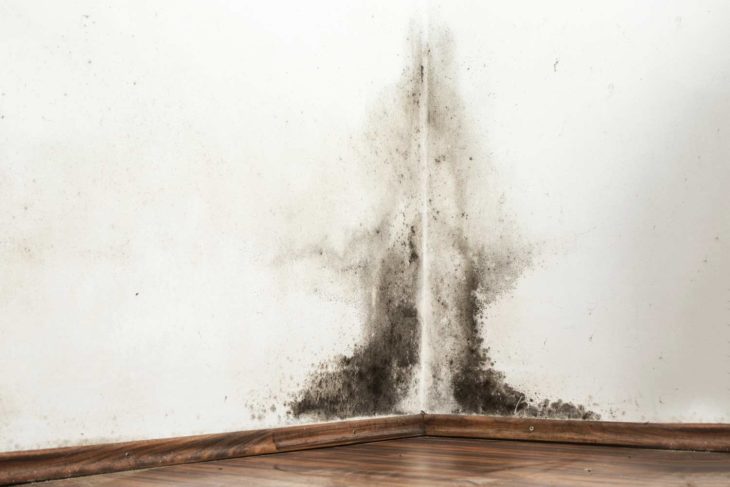
Source: medium
Unfortunately, damp, mold, and the health issues that they cause will not clear up by themselves. As allergens build up in your system, mold will likely cause you to become increasingly unwell.
If you’ve wiped away mold, only to find it keeps coming back, it can be an indication that you’ve got a damp problem in your property.
If you’re feeling unwell and you think damp might be the problem, you should talk to your doctor as soon as possible. It would help if you also spoke to your insurer or a leak detection service. After all, untreated mold and damp can potentially damage your bank balance just as much as your health.
